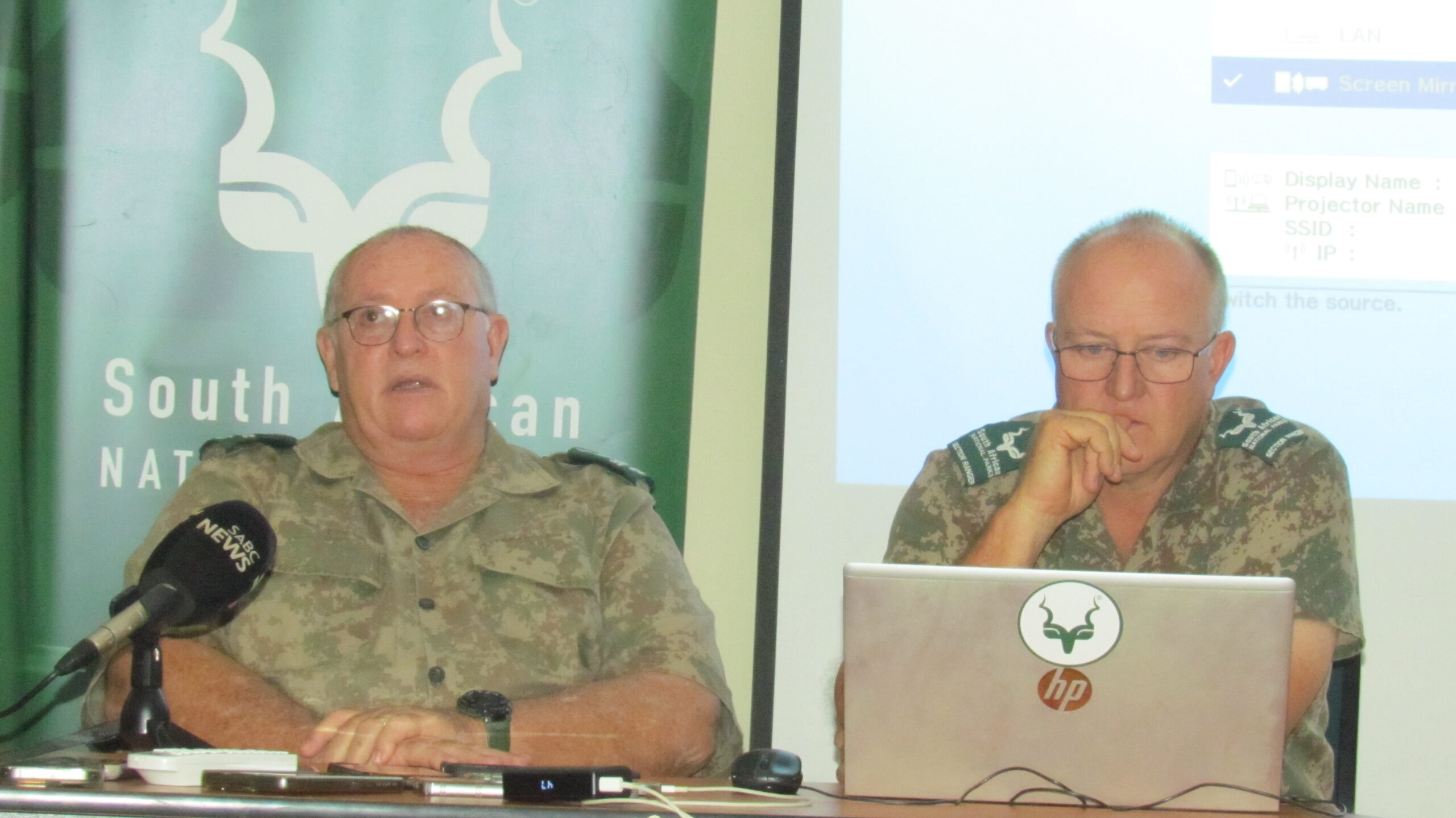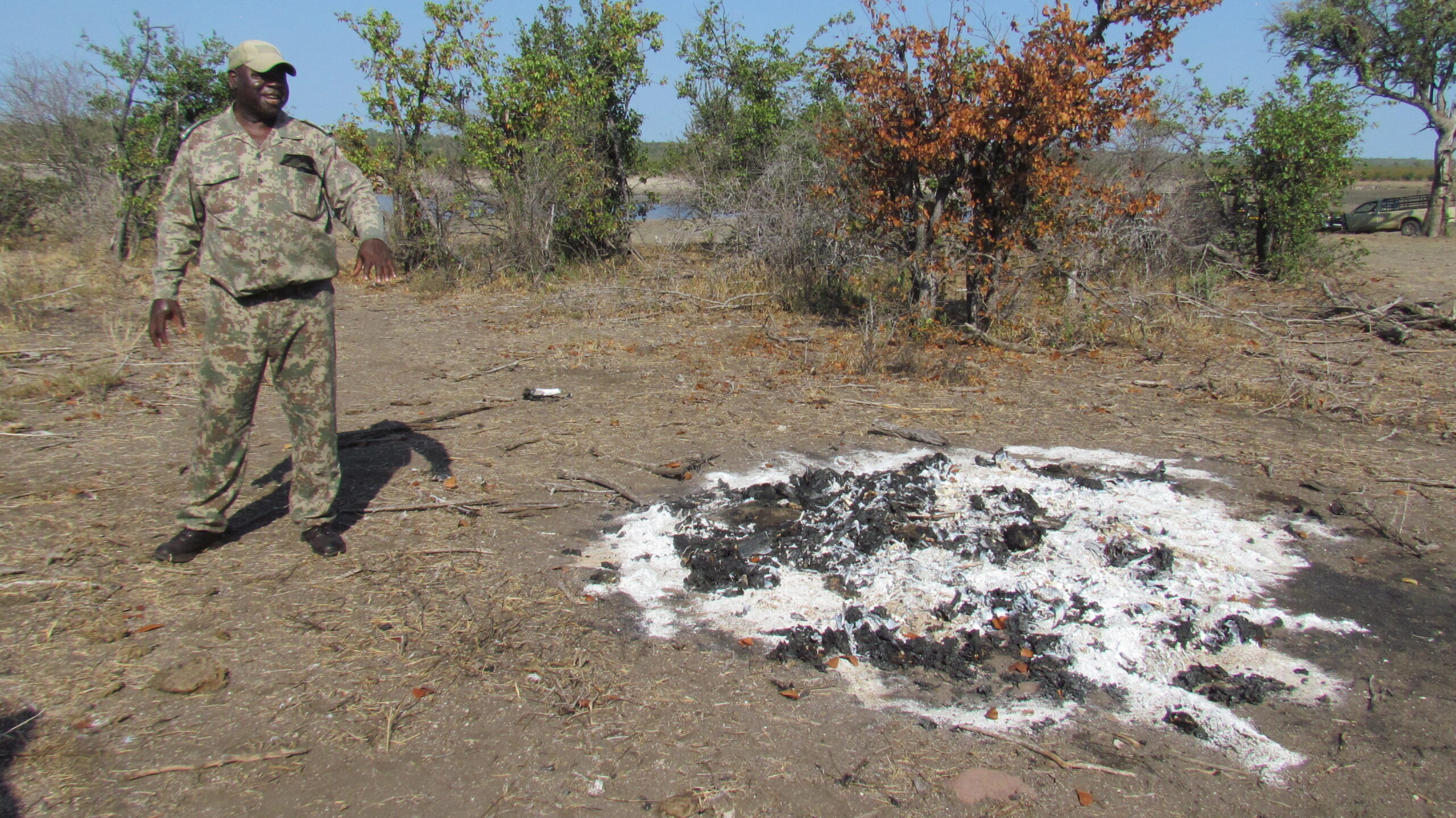
South African National Parks (SANParks) is calling on the government to impose harsh sentence for poachers.
This comes after SANParks indicated that it continues to lose wildlife due to poison, poaching and snaring.
SANParks held information sharing with the media at the Kruger National Park (KNP) in Mopani rest camp, Phalaborwa on Tuesday.
The purpose was to share information on conservation activities that are meant to fulfill SANParks mandate of managing a sustainable ecosystem that re-connects and inspires society.
The park is currently experiencing a problem of snaring and poison poaching.
Management at the South African national parks have sought to assure that measures are in place to prevent an increase in snaring incidents within its parks.
SANParks is working together with the communities.
Communities’ members are benefiting.
The information session started with different learners sharing their experience at SANParks.
“We are calling on government to review the legislature of poaching and to give tighter and harsher sentence for poaching,” said Don English Regional Ranger at Kruger Park speaking during a media briefing.
English told the Tshwane Talks that he was born in the Kruger Park, and he’s been working at the park for 38 years and he is a second generation.
When people caught poaching, court grant them bail. They repeat the same offence, and some are not sentence.
The Kruger Park experience problems such as the snaring of animals close to the borders with communities, the ongoing elephant poaching in the North and the concerns around poisoning of vultures.
“We are fighting poaching, snaring and poison in many ways at this moment,” said Don English.
English said they rely heavily on establishing an effective intelligence network in the area of the local community surrounding the park and trying to get that intelligence converted into driven operations to get around manpower shortages.
We are very well-trained field rangers, sectional rangers and experience rangers who are deployed on the field 24\7 looking for any sign of poaching and we deal with it as quickly as possible to prevent the damage to the environment.
“We will be implementing a transparency process of pornographic test and we have done this through negotiations in agreement with the Union and all employees have already been informed about it and they have accepted it.
This is something that is happening and it will be done randomly and will start small and then going through out and the first time it will be done randomly,” he said.
He said this is the first time they implement Polygraphics testing on all employees at Kruger Parks.

“The staffs are looking at the polygraph test positively and they welcome it to actually clear them and get rid of the guys who are trying to tarnish the reputation of SANParks,” he said.
English further explained that they always try their best to maintain a healthy relationship with the local communities but there is always a number of challenges which sometimes sour the relationship, the effect of the anti-poaching operation on people, poachers losing their lives, that can make things very tense.
SANParks Richard Sauri said last year alone SANParks recorded 3350 animals caught up in snares whilst 330 perished as a result within the Kruger National Park.
“It’s unclear whether an increased demand for bush meat could be linked to snaring and it’s imperative to act swiftly to address the crisis since SANParks continues to lose millions to poaching.
The legacy of the national park should be preserved for future generations,” Sauri said.
“We lost 86 vultures at the beginning of March due to poisoning and it breaks my heart to see so many vultures lying on the ground.
“I’m a ranger and I will die being a ranger, I grew up in the bush and I enjoy it and I been working in the Kruger Park since 1994 and this year I’m retiring in March,” said Joe Nkuna Section ranger.
Nkuna said he will educate the community about the important of wildlife even though he is retiring. He is planning to work as a ranger in his retiring days.
“The issues of poaching affect us a lot and what we are doing is to establish some forums, that will be able to deal with issue of blowing a whistle on poaching.
Poaching is not something that we have to be proud of, it’s something that will kill the business that we have,” said Prince Humphrey Mugakula Makuleke.
Prince Mugakula Makuleke highlighted that they have awareness program that is being run by the rangers coming from the SANPark.
“I don’t think it’s a good approach that our people be sentence or given harsh sentence because we will end up with traditional leaders without people.
The traditional leaders and SANParks we need to come up with a way, how best we can deal with this issue.
This is a sign of showing that in South Africa we have a problem of unemployment rate.
It is a sign that we need to create more jobs.
We need to bring in government to find a way to work with our neighboring countries to find ways to work with issue of poaching,’ Prince Makuleke said.
He said they have commercial management and control of Makuleke contract park, in the Kruger National Park.
The provision of Makuleke contract park’s prime land, is on a lease basis, for private concessionaires to establish and operate ecotourism enterprises for the socio-economic benefits of the Makuleke community.
“We are very happy with the relationship we are having with SANParks and it is a marriage that will never break,” he concluded.
“SANParks has done lots of things in the community, they have built schools, roads and have created jobs for the locals,” said a community member who is benefitting.
Tshwane Talks readers have been able to read stories in this publication for free for over two years now. We still want our readers to access our stories for free, but we are asking those among our readers who can afford it to contribute at least R30 a month to cover some of the costs of publishing this independent, non-aligned online newspaper which gives a voice to all sectors of society irrespective of race, colour, creed, religion, or political affiliation. You may make your contribution by depositing at least R30 a month into Tshwane Talks' bank account. Details are as follows:
Bank Details
Bank: Standard Bank
Account Number: 10225548834
Account Type: Cheque Account